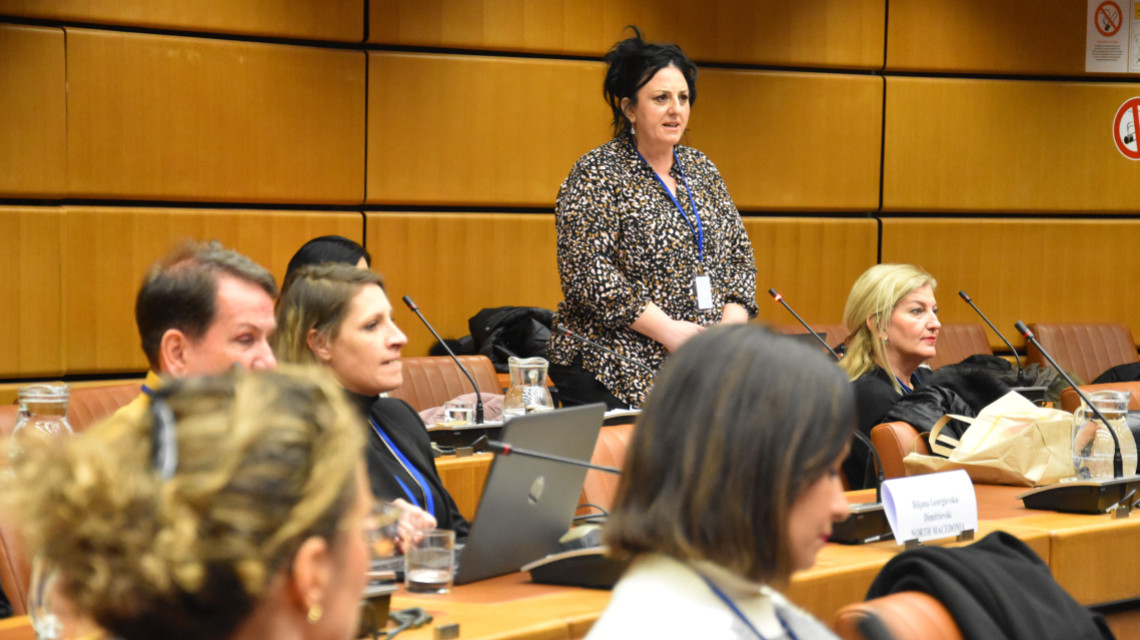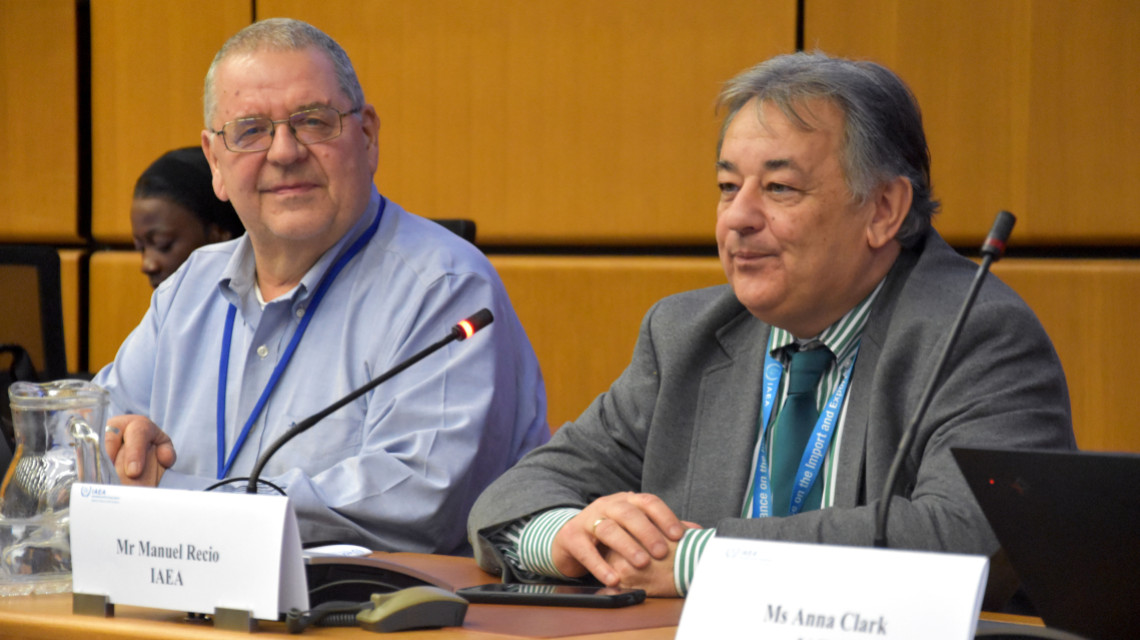
During the School’s closing session, participants described the progress they achieved toward finalizing their national regulations with the help of IAEA and international experts. (Photo: O. Yusuf/IAEA)
Each of the participating Member States—Armenia, Bosnia and Herzegovina, Bulgaria, Estonia, Latvia, Montenegro, North Macedonia, Poland, Portugal, Romania, Türkiye and Uzbekistan—nominated candidates, who were subsequently accepted by the IAEA on the basis of their legal or technical competencies.
Divided into country teams comprising one legal adviser and at least one technical specialist in either radioactive waste management or facility decommissioning, the selected participants were asked to complete several advance steps before enrolling in the School. These included taking an online training module, submitting a national presentation, preparing draft regulations and responding to an IAEA questionnaire to establish the current state of their regulatory framework.
These prerequisites not only ensure that School attendees arrive with strong draft regulations, but that they possess the necessary expertise to contribute substantively to the evolving draft. The online training module, for example, demonstrated how regulations may be brought into alignment with national legislation, indicating how to identify gaps or asymmetry between safety regulations and laws using common examples.
“This was the first event organized around this unique subject which I’ve attended, and its effectiveness cannot be overstated,” said Koray Türkan, an Assistant Nuclear Regulatory Expert at the Nuclear Regulatory Authority of Türkiye. “The e-learning course helped us to focus on the most important aspects of our national laws and regulations, aspects which we were able to deeply discuss together with the IAEA instructors.”
With the prerequisites complete, 27 participants joined IAEA and international experts at the Agency’s Vienna headquarters to attend the two-week School. Beginning with a lecture that focussed on the specific safety requirements for waste management and decommissioning, the attendees proceeded to review the relevant IAEA safety standards, to study best practices in the development of regulations, and to refine their drafts through an iterative review process with experts and peers in the region.
The new School curriculum complements the IAEA’s existing suite of specialist schools and training courses, designed to support countries as they manage nuclear knowledge, build capacities in radiological emergency preparedness and response, or train a cadre of professionals to maintain existing, or establish new, nuclear power infrastructure.
12 IAEA Member States were represented among the School’s participants, namely Armenia, Bosnia and Herzegovina, Bulgaria, Estonia, Georgia, Latvia, Montenegro, Poland, Portugal, North Macedonia, Romania, Türkiye and Uzbekistan.








